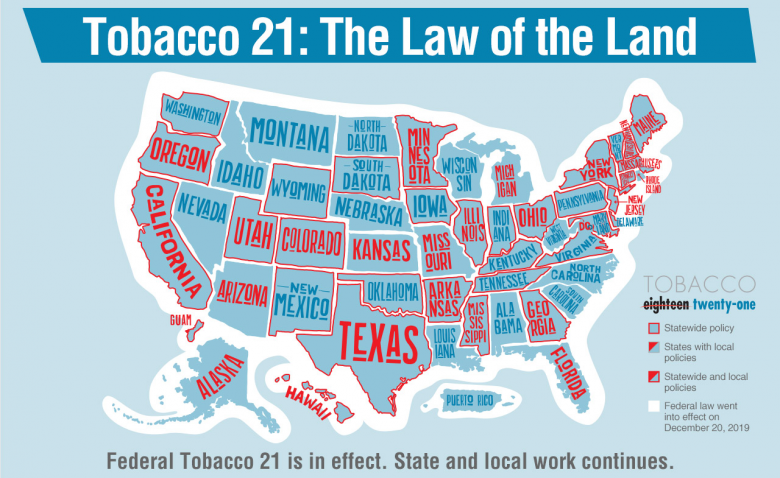A new study published in the JAMA Network Open shows that for the first time the daily e-cigarette uses among Americans of ages 18-20 years declined in 2020. The overall current e-cigarette uses levels also declined marginally indicating the positive results of the tobacco 21 legislation.
This study was carried out by the Tobacco Center of Regulatory Science of the American Heart Association and focused on self-reported e-cigarette use data of U.A citizens. The data was collected between 2017 and 2020 from the Behavioral Risk Factor Surveillance System. The data was of over 429,000 adults in 2017, over 280,000 adults in 2018, and about 285,000 adults in 2020. The researchers were interested in estimating daily e-cigarettes use and the current e-cigarette use (used within the last 30 days) for each state between 2017 and 2020.
Overall, there was a modest decline in the current use of e-cigarettes in the country. The current e-cigarette uses in the country declined from 5.5% in 2018 to about 5.1% in 2020. The decline in current use was not uniform across all the states. Some recorded exemplary improvement while others recorded an increase. For example, states like New York, Connecticut, Massachusetts, and North Dakota recorded a decline in the current use of e-cigarettes among its adults. While states Tennessee, Kansas, and Utah recorded an increase over the same period.
In addition, the decline was not uniform across all the age groups. While some groups recorded a decline in current use some had a marked increase. The largest decline was among adults of ages 18 to 20 years. According to Michael J. Blaha, M.D., M.P.H., the senior author of the study this was due in part to the fact that many states have passed a law banning the sale of tobacco products including e-cigarettes to individuals under 21 years. The largest increase in current use of e-cigarettes was among those between the ages of 21 and 24. This is alarming as it seems that as the younger generations shun e-cigarettes the older ones embrace them.
Another issue of concern was an increase in the daily use of e-cigarettes. Among current users, the number of those who reported using e-cigarettes daily increased from 34.5% nationally in 2017 to about 44.4 nationally in 2020. Again, the highest increase occurred among those aged between 21 and 24 years.
The authors of the study believe that the tobacco 21 legislation which raised the smoking/vaping age to 21 has helped in reducing the prevalence of current e-cigarette users in the country. However, they say more need to be done to educate adults especially those between 21 and 24 years on the dangers of vaping.
“Studies have shown e-cigarettes to have harmful effects on the cardiovascular system, including increased heart rate and blood pressure. More importantly, the use of e-cigarettes along with combustible cigarettes represents a problematic use pattern with an increased risk of cardiovascular and lung disease,” said Blaha.
Ellen Boakye, M.D., M.P.H., the co-author of the study says that extensive public education is the way to go. She believes that extensive public education on the dangers of using tobacco products following the EVALI outbreak in 2019 could have contributed to the decrease in the number of current users of e-cigarettes in the country.
“It’s also possible that the extensive public education and increased public awareness that accompanied the 2019 e-cigarette or vaping product use-associated lung injury (EVALI) outbreak may have played a role, “ she said.
The authors of this study agree that their study could not predict all factors that govern the decrease or increase in e-cigarette use. Therefore, further studies will be needed to assess factors that contribute to the transition from occasional use to daily use. This is important to develop policies to discourage e-cigarette uptake.







